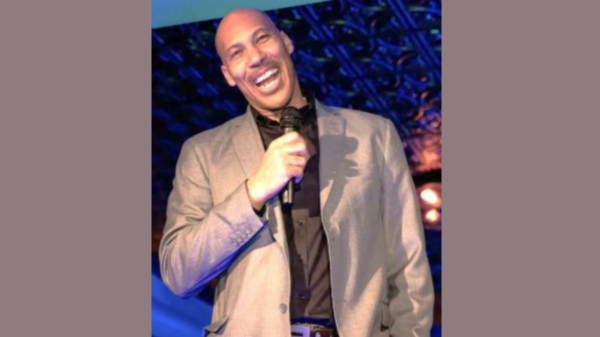By David W. Marshall Via TriceEdneyWire.Com
Despite the changing society we live in, the honor of being a teacher will never change. Knowing that a teacher can shape the young minds of children for a lifetime is a reward in itself. Both the student and the society benefit when a teacher is successful in molding future generations and developing future leaders. In many cases, the teaching profession is a family tradition.
K.J. Johnson is a 23-year-old educator in Buna, Texas where he wears multiple hats as a girls’ basketball coach, special education teacher, in addition to being an anatomy and physiology teacher. The various roles in which he serves his students is what makes him priceless. Johnson comes from a family of educators, including a mother who is a math and science teacher, a father who is a superintendent, a stepmother who is a guidance counselor, and grandmothers who worked as teachers.
The family legacy of teaching is deep-rooted, and he was encouraged to pursue it as a career. Young Black men like Johnson are defying stereotypes and stepping up to become teachers, but more are needed. Donald Moses, from Houston, Texas, never planned on entering the teaching profession. The 25-year-old went to college with the goal of becoming a criminal defense lawyer. However, Moses was inspired by participating in a college program which served as a pipeline to teaching. Moses later made the decision to become a teacher and he joined Johnson as part of what is becoming a decreasing number of Black men who serve as K-12 classroom teachers.
As of August 2022, there were approximately 36,000 teacher vacancies across the United States. As the teaching profession becomes more politicized and hostile due to culture wars, will the decrease of Black men entering the teaching profession continue to slide? Not everyone is called to be a teacher, therefore we should encourage and support those who have the passion and drive to do so. Black students who attend public schools are disproportionately taught by teachers from different ethnic or racial backgrounds. Children of color need to see themselves in teachers. They need role models who reflect their culture and background. According to the U.S. Department of Education, in 2015, only 2 percent of the public-school teachers in the U.S. were Black males.
Today that number has dropped to 1.3%. The Black male teacher is basically nearing extinction.
As HBCUs produce 50 percent of Black teachers, these institutions are recognized as being key players in solving teacher shortages while building a more diverse teaching force around the country. The tradition of training educators at HBCUs dates back to the Civil War era as the early HBCUs were founded as teacher’s colleges. A study released by DonorsChoose found that HBCU graduates account for some of the most dedicated teachers. Another research suggests the training found at HBCUs plays a part in what makes an effective teacher. In North Carolina, Black elementary school students performed better in math when taught by an HBCU-educated teacher. At Bowie State University, faculty, students, and alumni said their training as teachers centered on the importance of building a strong sense of community and connecting with their students as individuals.
Almost half of the nation’s schools are restrained in teaching on issues concerning race and racism. This growing opposition to having inclusive curriculums in schools cannot be allowed to weaken the current pipeline from HBCUs to the K-12 classrooms. Our schools cannot afford further decreases in the number of Black male teachers who may become politically discouraged from entering the profession.
The largely unnoticed crisis is being addressed by the growing number of special programs, such as Summer House and Black Men Teach, whose goals are to encourage Black men in becoming teachers and providing them with the training and preparation that is needed. Both K.J. Johnson and Donald Moses are members of the Summer House Institute, a four-week extensive fellowship program where young men are exposed to careers, leaders and networking opportunities related to K-12 education. The fellows are matched with a current Black male educator for guidance and must complete 80 hours of volunteering in K-12 classrooms after their summer experience allowing them significant exposure to the realities of classroom teaching. The Summer House Institute co-founders, Vincent Cobb II, and Rashid Coleman, believe that working with college age men who are formalizing their career decisions is the right intervention point for the fellowship program.
When we consider the fact that less than 2 percent of teachers are Black men, it should sound the alarm not just for what this absence means to public education, but what it means to the overall idea of public service. Not only are the schools struggling with recruitment and retention, but the same is true with police departments and the military. Public service still remains an honor, despite the fact that less people are willing to serve.
David W. Marshall is founder of the faith-based organization, TRB: The Reconciled Body, and author of the book “God Bless Our Divided America.” He can be reached at www.davidwmarshallauthor.com.

You must be logged in to post a comment Login